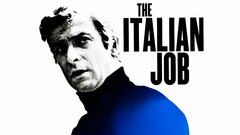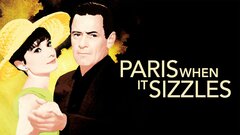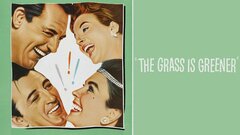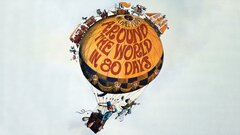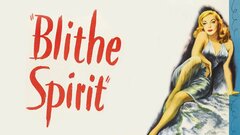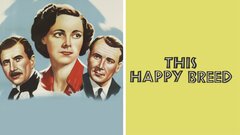A prolific British playwright, songwriter and actor whose work reflected both an acidic modern cynicism and a sentimental longing for his Edwardian childhood, Noël Coward became one of the most successful and influential performing artists of the 20th century. From his time as a childhood actor on the stage, Coward achieved great critical and financial success, particularly after coming into his own as a playwright in the early 1920s with risqué hits like "The Better Half" (1922), "The Vortex" (1924) and "Easy Virtue" (1926).
Thriving during the Great Depression, Coward saw many of his plays adapted into successful films like "Cavalcade" (1933) and "Design for Living" (1933), as well wrote his best known work, "Private Lives" (1931). Though his career was sidetracked by World War II, where he began a fruitful collaboration with David Lean on the wartime propaganda film "In Which We Serve" (1942). Lean successfully adapted the play "Blithe Spirit" (1945) and commissioned Coward to write an original script for "Brief Encounter" (1945). But after the war, Coward struggled to regain his prewar success with his pen, though he appeared more frequently on the big screen in films like "Around the World in 80 Days" (1956) and "Our Man in Havana" (1959). Following his last onscreen performance in "The Italian Job" (1969), Coward retired from acting and died just a few years later. With his elegant persona, Coward was a modern day Oscar Wilde whose charisma, talent and wit made him a major star both onstage and off.
Born on Dec. 16, 1899 in Middlesex, England, Coward was raised by his father, Arthur, a piano salesman, and his mother, Violet, whose father was a captain and surveyor in the Royal Navy. At seven years old, he began performing in amateur contests and attended the Chapel Royal Choir School as a child. When he was 11, Coward was sent by his mother to a dance academy in London and soon made his debut in the children's play "The Goldfish" (1911). From there, he latched on to actor and theater manager Charles Hawtrey, who mentored the young Coward in performance while casting him in another children's play, "Where the Rainbow Ends" (1911-12).
The following year, he played the Lost Boy Slightly in a production of "Peter Pan" and became the protégé of artist Philip Streatfield, with whom he was rumored to have had an affair.
Meanwhile, Coward made his feature acting debut in D.W. Griffith's "Hearts of the World" (1917), but his career was briefly put on hold when he was drafted into the British Army during World War I. Fortunately, Coward was deemed unfit for duty due to tubercular tendencies and was dismissed nine months later.
Returning to theatre, Coward began selling short stories to magazines while also writing plays, selling his first solo effort, "The Rat Trap" (1918), while starring in another of his plays, "I'll Leave it to You" (1920). At the time, he was finally generating notice for his biting, satirical style with witty, risqué comedies like "The Better Half" (1922) and "The Young Idea" (1923), which marked his first real success as a playwright. Coward made his mark both critically and financially with "The Vortex" (1924), an ahead-of-its-time play about a nymphomaniac socialite and her cocaine-addicted son.
Around this time, Coward met Jack Wilson, an American stockbroker who became his business partner and lover until the mid-1930s. Meanwhile, he churned out one gem after another, writing such well-known works as "Hay Fever" (1925), "Easy Virtue" (1926), "This Year of Grace" (1928) and his best known effort, "Private Lives" (1931). While most of the world suffered during the Great Depression, Coward thrived and became one of the highest-paid writers of his day, producing such hits as "Bitter Sweet" (1929) and "Cavalcade" (1931), the latter of which was made into an Oscar-winning film in 1933.
Having broken through in Hollywood, Coward had one of his biggest successes adapted from his 1932 play, "Design for Living" (1933), a screwball comedy from master Ernst Lubitsch starring Gary Cooper, Fredric March and Miriam Hopkins. Also at the time, he adapted his own play, "Bitter Sweet" (1933), into a drama starring Anna Neagle and Fernand Gravey, while marking his talkie debut on screen as the star of Ben Hecht's redemptive drama "The Scoundrel" (1935). He returned to the stage with the musical "Operette" (1937) while writing two other plays, "This Happy Breed" and "Present Laughter," only to find life interrupted by World War II.
Putting aside his career to help the war effort, Coward ran the British propaganda office in Paris and sought to use his celebrity to enlist American assistance. Though criticized at the time for traveling abroad while his countrymen suffered Nazi bombing raids at home, it was later revealed that Coward was working on behalf of the British Secret Service and he was in fact high on the Nazi blacklist to be arrested and killed if ever captured.
During the war, Coward co-directed the propaganda film, "In Which We Serve" (1942) with David Lean, which earned him a special Academy Award for outstanding production achievement that same year. The film was also significant for marking the beginning of his fruitful collaboration with Lean, which continued with him adapting his own play for "Blithe Spirit" (1945), a comic fantasy staring Rex Harrison and Constance Cummings. That same year, Coward wrote the original screenplay for Lean's excellent bittersweet romance "Brief Encounter" (1945), which followed a bored housewife (Celia Johnson) who has a passing love affair with a traveling doctor (Trevor Howard). Meanwhile, Coward struggled to reach his prewar success with his postwar plays, enjoying moderate, but underwhelming successes with "Peace in Our Time" (1947), "Island Fling" (1951) and "Relative Values" (1951). He also continued writing musical revues with "Sigh No More" (1945), "Pacific 1860" (1946), "Ace of Clubs" (1949), and "After the Ball" (1953), but again struggled to match the critical success of his prewar output.
Coward went on to write and star in the British drama "The Astonished Heart" (1950) and suffered one of the biggest screen failures of his career. Despite the setbacks of his stage and screen career at the time, Coward maintained a highly-visible public profile and eventually struck gold once again with a finely-tuned cabaret act staged in both London and Las Vegas. In 1955, the act was recorded on record and released as Noël Coward at Las Vegas, a hugely successful album that prompted CBS to sign him to write and direct three TV specials in the mid-1950s, all of which received high critical praise and solid ratings. Of course, Coward continued to write for the stage and produced a pair of his last musicals with "Sail Away" (1961) and "The Girl Who Came to Supper" (1963).
Always game to appear onscreen, Coward did so with more frequency and landed roles in "Around the World in 80 Days" (1956), "Our Man in Havana" (1959), "Surprise Package" (1960) and "Paris, When It Sizzles" (1964), starring William Holden and Audrey Hepburn. He also appeared in Otto Preminger's cult favorite "Bunny Lake is Missing" (1965) and the much-despised "Boom!" (1968), starring Elizabeth Taylor and Richard Burton.
During the 1960s, Coward's writing output declined considerably and he wrote only three plays in the decade, "Waiting in the Wings" (1960), "Suite in Three Keys" (1966) and his final play, "Star Quality" (1967). His final onscreen role was a major supporting role in the classic heist thriller, "The Italian Job" (1969), where he played a prison boss enlisted by a master thief (Michael Caine) to hijack a shipment of gold from the mob in Italy.
At the time of this appearance, Coward began suffering from arteriosclerosis, or stiffening of the arteries, and began displaying memory loss that actually affected his performance in the film and led to him promptly retiring from acting. After writing his final two musical revues, "Oh, Coward!" (1972) and "Cowardly Custard" (1972), Coward died on March 26, 1973 of a heart attack in his Firefly Estate in Jamaica. His legacy on stage and screen was incalculable, but his image was enduring. Coward's plays continued to be performed the world over in countless reproductions while several of his works were adapted decades later to great acclaim on both television and in film. A perpetual bachelor who abhorred discussing his private life, Coward's homosexuality came into full light following his death, particularly his relationships with such noted actors as Alan Webb, Graham Payn - who was made the heir to Coward's estate - and Michael Redgrave. A legend both in his day and beyond, Coward's influence was widely felt well into the following century.
By Shawn Dwyer








